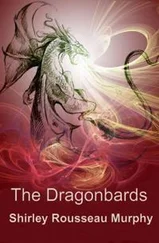Ширли Мерфи - The Ivory Lyre
Здесь есть возможность читать онлайн «Ширли Мерфи - The Ivory Lyre» весь текст электронной книги совершенно бесплатно (целиком полную версию без сокращений). В некоторых случаях можно слушать аудио, скачать через торрент в формате fb2 и присутствует краткое содержание. Издательство: Ad Stellae Books, Жанр: Фэнтези, на английском языке. Описание произведения, (предисловие) а так же отзывы посетителей доступны на портале библиотеки ЛибКат.
- Название:The Ivory Lyre
- Автор:
- Издательство:Ad Stellae Books
- Жанр:
- Год:неизвестен
- ISBN:нет данных
- Рейтинг книги:4 / 5. Голосов: 1
-
Избранное:Добавить в избранное
- Отзывы:
-
Ваша оценка:
- 80
- 1
- 2
- 3
- 4
- 5
The Ivory Lyre: краткое содержание, описание и аннотация
Предлагаем к чтению аннотацию, описание, краткое содержание или предисловие (зависит от того, что написал сам автор книги «The Ivory Lyre»). Если вы не нашли необходимую информацию о книге — напишите в комментариях, мы постараемся отыскать её.
The Ivory Lyre — читать онлайн бесплатно полную книгу (весь текст) целиком
Ниже представлен текст книги, разбитый по страницам. Система сохранения места последней прочитанной страницы, позволяет с удобством читать онлайн бесплатно книгу «The Ivory Lyre», без необходимости каждый раз заново искать на чём Вы остановились. Поставьте закладку, и сможете в любой момент перейти на страницу, на которой закончили чтение.
Интервал:
Закладка:
“Only you can help him,” Hexet said softly. “If you do not, they will kill him.”
He saw she was weakening. “His murder will be a curse on your soul, Queen Stephana.”
She stared at him in misery. He pushed his nose against her cold hands, but his look was hard, demanding.
At last she seemed to relax, to soften, to give up the battle. Her eyes were pained, and somehow younger. And then, so suddenly that she startled him, she was weeping, deep, racking sobs that alarmed him.
He had never seen her so out of control. Had she taken some of the drug? Roderica kept it here, did not put it into her food, took it herself sometimes, which explained, Hexet thought, Roderica’s wild changes in temperament. He pressed against the queen, and the old woman put her arms around him and bawled wetly into his shoulder.
When she subsided at last, she told him about the lyre, how the sudden knowledge of it had exploded in her mind when the spell was shattered.
‘There is power here in this palace. I never knew—he kept me locked away from it.”
Hexet did not point out to her that she had allowed herself to be locked away, had welcomed it. But her face was filled with the shame of that.
“I did it only because there were no more dragons. Because I was all alone. . . .”
Hexet leaned close to her. “There are dragons,” he said softly. “I believe there are dragons.” He looked up into her faded eyes. “I believe there are dragons here on Dacia. I have good reason to believe it.” He saw a spark come alive, a germ of yearning and fire. “I believe, Queen Stephana, that if you will do as I say—now, today—I believe that you will see them.”
*
News of the bear-creature that had killed two of Sardira’s soldiers exploded into gossip that spun across the city like wildfire, increasing the number of dead soldiers tenfold and painting the bear tall as the palace. Tales spun from urchin to shopkeeper to brothel and tavern, then out along the streets. Soon no one in the city was ignorant of the killer bear that had been captured and would star in the stadium games, pitted against its own master, against bulls and the horse-sized lizards. The city, wild for the sight of blood, laid odds thirty to one, fifty to one, all in favor of the bear. Well before the stadium games began, the five gates to the stands were jammed with shouting commoners sucking on clay bottles of mithnon and sniffing cadacus or licking it from the backs of dirty hands. Small children came glaze-eyed, shouting for gore, and when the gates were thrown open the crowds stormed into the stands, the drunks and cadheads screaming and stamping, pushing their fellows off the stone bleachers onto the heads of others. Before the games began, more than a dozen citizens lay dead, ignored by their seething fellows, and others had crawled away injured.
The first game was a teaser, designed to heighten their lust to new frenzy.
A naked, bound prisoner was dragged into the center of the arena, a man jailed two months before for annoying a palace guard when he tried to deliver cabbages. He lay staring at the gate, shivering and exposed, as two dozen maddened, steel-spurred gamecocks, raised on a diet of raw meat, were dumped out of baskets onto his prone body. The crowd’s cheering excited the roosters further.
Kiri could see through the arrow slits in the low stone wall below the seats as she moved beneath the stands, but she did not look. The victim’s screams were enough, alone, to make her sick; that, and the crowd’s insane shouting.
It was damp under the stands, and smelled of urine. She knew that, somewhere above her among the crowded benches, Garit watched the bloody games. So did a handful of rebel soldiers, though the bulk of the rebel forces had remained outside the gate, milling and shouting with the rabble that could not get in; they were more mobile out there, and might be of more use. Prince Tebriel was the first prisoner for whom the rebel armies had come out of hiding in force. He was perhaps the only prisoner for whom they would have shown themselves so openly. They had counted on reinforcements from other countries, time to arm more heavily before they declared open war. It was all happening too fast.
She approached the cages beneath the stands warily, for Sardira’s soldiers were thick around them, keeping the rabble back. They let a few street folk through, those wild with drugs and armed with sharp sticks to tease the captives. A horse screamed, and there was a deep bellowing that must be the bear. The crowd was so thick around the bars she could not see Tebriel. As she pushed her way through, she could see a herd of old, lame horses being driven out of a pen into the arena. They were followed by a spotted bull forced out with spears. It kept charging the fence, maddened from the cadacus it had been given.
Then, looking down through the cages, she saw the silver bear. It was sitting on its haunches, silent and still, watching the arena.
Had they given cadacus to the bear? Sometimes the drug produced rage, and sometimes lethargy. Had they drugged Tebriel? In humans, the cadacus stirred false power, making them foolhardy; then soon they would collapse into a depression of terror.
A knot of men forced her back from the bars, and one of them pinched her crudely. She flung away from him, her wound searing her with pain, then slipped into a crowd of laughing, drunken couples. She fought her way back to the cages, away from the pinching men, and grabbed up a stick as if to prod along with half a dozen others. She pressed against the bars, staring down though the row of cages, and could just see the great bear. She backed away when the caged black bull charged her, hitting the bars like an earthquake. The bull’s tormentors jeered.
As she worked her way to the left toward the bear, she could see a dozen horse-sized brown lizards writhing beyond. In the last cage stood Tebriel chained to the wall, his leathers stained with blood. She began to push toward him, but five drunken boys blocked her, laughing, and one grabbed her arm. She kicked him in the leg, kneed him, and spun away, tunneling through the mob, ducking and shoving.
The prince stood with his back to her, watching the stadium, where, now, the spotted bull charged blood-hungry lizards among the bodies of the dying horses. Kiri watched the crowd. No one seemed interested in Tebriel; all were watching the bloody game. She whispered to him. He seemed glued to the spectacle of killing. When she spoke again, he turned.
His eyes were filled with fury; his face was drawn; his fists were clenched white. Such anger filled him that he did not recognize her at first. Then his eyes changed. He came to the bars to look down at her.
“Kiri! Oh . . .” His eyes searched hers, puzzled at the emotion that flared between them. He was tired, wounded, sick with the killing in the arena, straining to keep his head when he knew he might die soon.
“A man with red hair sent me,” she said softly.
“Garit,” he whispered. Then a flash of suspicion showed deep in his eyes. She reached to touch his hand.
A man glanced at her and turned away. A rag woman wandered by close to her and didn’t look, one of Garit’s trusted spies. Kiri made as if drunk, trying to throw up against the cage bars as a group of girls moved near.
When she and Tebriel seemed ignored again, she said, because she knew Garit would expect it, and to prove herself to Teb—but not because she needed proof, now, “What hangs on the walls of your palace?”
His eyes flared with interest. “Tapestries. They were bright once, but now they’re ruined, maybe gone. Do you know what they showed?”
“Other worlds,” she said, “that you had never seen.”
He nodded.
“What color dress did your mother wear most?”
Читать дальшеИнтервал:
Закладка:
Похожие книги на «The Ivory Lyre»
Представляем Вашему вниманию похожие книги на «The Ivory Lyre» списком для выбора. Мы отобрали схожую по названию и смыслу литературу в надежде предоставить читателям больше вариантов отыскать новые, интересные, ещё непрочитанные произведения.
Обсуждение, отзывы о книге «The Ivory Lyre» и просто собственные мнения читателей. Оставьте ваши комментарии, напишите, что Вы думаете о произведении, его смысле или главных героях. Укажите что конкретно понравилось, а что нет, и почему Вы так считаете.
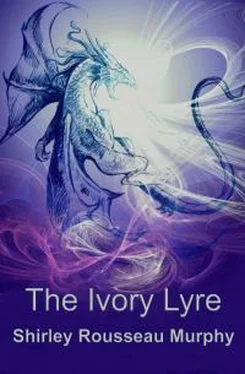
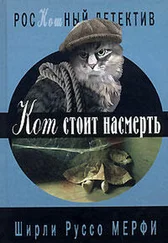
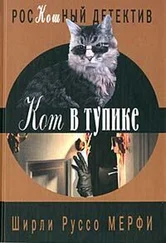
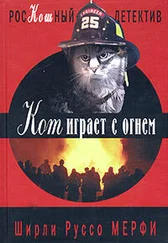

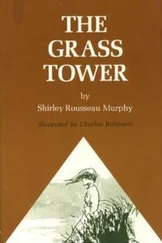
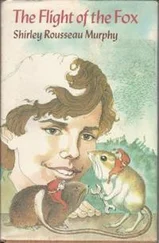

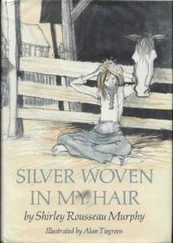
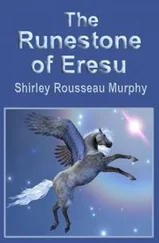
![Ширли Мерфи - The Shattered Stone [calibre]](/books/436059/shirli-merfi-the-shattered-stone-calibre-thumb.webp)
